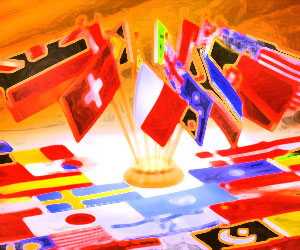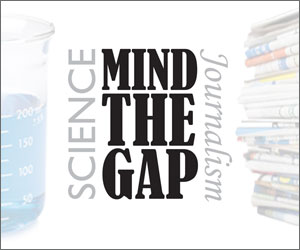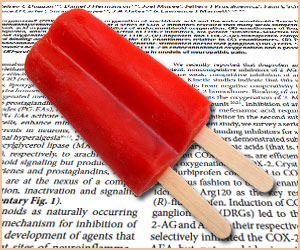I was wondering if you could settle an argument for me – what came first: the grad student or the PI?
-EJ, grad student
by
I was wondering if you could settle an argument for me – what came first: the grad student or the PI?
-EJ, grad student
by
 Right now I’m in “pre-conference crunch mode” along with “manuscript writing mode” so “digging through popular science posts” has taken a bit of a back seat. Please forgive me! I do have some good ones saved for next month, but for now I want to follow up on last month’s analysis of science in the media. Then I focused on the big TV network’s websites, and how the displayed science news. This month I’ve picked some of the top English speaking newspapers from around the world (four from the US, one from the UK, and one from India) to see how THEIR website’s fair.
Right now I’m in “pre-conference crunch mode” along with “manuscript writing mode” so “digging through popular science posts” has taken a bit of a back seat. Please forgive me! I do have some good ones saved for next month, but for now I want to follow up on last month’s analysis of science in the media. Then I focused on the big TV network’s websites, and how the displayed science news. This month I’ve picked some of the top English speaking newspapers from around the world (four from the US, one from the UK, and one from India) to see how THEIR website’s fair.
by
 Whether a Derby-winning horse, a Grammy-nominated musician, or a PhD-obtaining scientist, there exists a cast of unsung heroes who have made the individual’s success possible. We might not have three trainers, a jockey and eat carrots all day long, but we certainly have people who have popped us with the whip every once in a while to keep us going. Fortunately, they’re usually the same people that are there to catch us when we stumble as well. With Thanksgiving just a few days away, let’s take a moment to remember, appreciate, and thank the entourage that made our pursuit of science possible.
Whether a Derby-winning horse, a Grammy-nominated musician, or a PhD-obtaining scientist, there exists a cast of unsung heroes who have made the individual’s success possible. We might not have three trainers, a jockey and eat carrots all day long, but we certainly have people who have popped us with the whip every once in a while to keep us going. Fortunately, they’re usually the same people that are there to catch us when we stumble as well. With Thanksgiving just a few days away, let’s take a moment to remember, appreciate, and thank the entourage that made our pursuit of science possible.
by
My parents are both non-scientists and have no idea what I do, despite hours of attempted explanations. Am I a jerk for getting frustrated at their lack of ability to grasp my project?
-Short fuse, graduate student
by
 Isn’t the official language of science…science? Well, there’s no doubt science is a language of it’s own, but international conferences have opted for English as the primary means of communication. Talks, poster sessions, and exhibit halls all expect registrants to speak the same language. Yet once everyone returns home to their respective labs, should the language rules still apply?
Isn’t the official language of science…science? Well, there’s no doubt science is a language of it’s own, but international conferences have opted for English as the primary means of communication. Talks, poster sessions, and exhibit halls all expect registrants to speak the same language. Yet once everyone returns home to their respective labs, should the language rules still apply?
by
 “Grr”. That’s about as close to impersonating a lion’s roar that you, or I, or even Austin Powers, will ever be able to get, thanks to the lack of fat in our vocal folds.[Continue Reading…]
“Grr”. That’s about as close to impersonating a lion’s roar that you, or I, or even Austin Powers, will ever be able to get, thanks to the lack of fat in our vocal folds.[Continue Reading…]
by
 Communicating our work is one of the most important responsibilities of our job as scientists. Although traditional publication is one mechanism of sharing our findings, more commonly we’re called upon to present our research orally. Whether speaking at a small group meeting or a large international conference, the success of our talk may hinge on our ability to craft an engaging performance.
Communicating our work is one of the most important responsibilities of our job as scientists. Although traditional publication is one mechanism of sharing our findings, more commonly we’re called upon to present our research orally. Whether speaking at a small group meeting or a large international conference, the success of our talk may hinge on our ability to craft an engaging performance.
by
by
 In our publication-dominated world decisions about graduating, funding and hiring depend heavily upon the number and quality of our manuscripts. As a result, setting an author byline can be contentious to say the least. While three positions are widely regarded as the most important – first, second and the corresponding author – there is another option that is frequently treated like the red-headed stepchild of the byline: the co-first author.
In our publication-dominated world decisions about graduating, funding and hiring depend heavily upon the number and quality of our manuscripts. As a result, setting an author byline can be contentious to say the least. While three positions are widely regarded as the most important – first, second and the corresponding author – there is another option that is frequently treated like the red-headed stepchild of the byline: the co-first author.